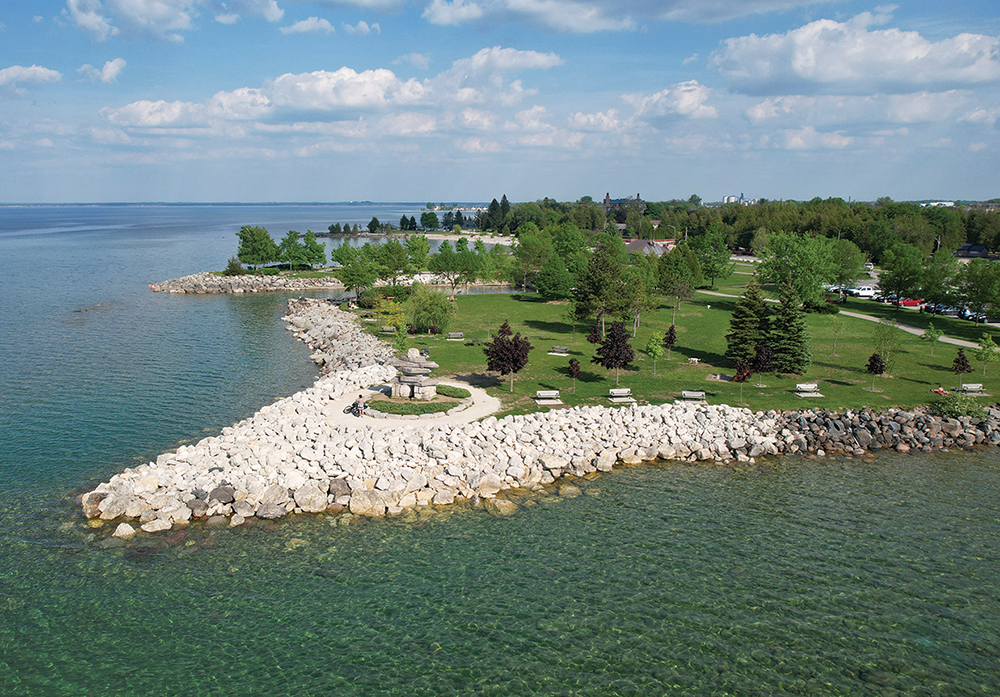by Roger Klein
Looking west across a shale bedrock outcropping, photographer Jack Saunders captured this image in the 1950s of children gathering at the water’s edge. The granite boulders offer a small landmark and a special place for friends to meet or just lie in the summer sun. The shipyard and grain elevator in the distance reveal that this photo is Sunset Point in Collingwood. At the time, much of the town’s waterfront was occupied by heavy industry, sewage lagoons and a garbage dump.
The park dates back to the late 1880s when the area was known as Fisherman’s Point. The fenced property was owned by a man named Bernard Callary. It was Callary who first opened the land to the public. A few years later, in 1884, he went on to become the town’s mayor.
Callery died unexpectedly while still in office. He was found dead in bed on the morning of Sep 17, 1896. Fifty-two years old, he was unmarried and had no children.
Following his death, the Town of Collingwood purchased the land from his estate for $1,500. The initial intention was to call it Callary Park, but it was renamed Victoria Park and then Georgian Bay Park before being formally named Sunset Point Park on June 29, 1926.
The park has been the town’s crown jewel ever since. It first gained widespread popularity in the 1930s when a “tourist park” was developed with overnight cabins and tents.
In the early 1970s, the Rotary Club became involved in redeveloping sections of the park. Fill was brought in to improve the beach; a new change house was also built.
In 1986 more shoreline reinforcement was added to protect the park against erosion caused by record high-water levels.
The stone Inukshuk, one of most prominent features at the park, was erected in 2003 by the Crompton family as a tribute to their son Peter, who died in a boating accident in Muskoka. Peter was an avid windsurfer who frequented “the point” to ride the waves with friends on windy days.
The stone figure faces the prevailing wind, watching over the Bay in recognition of a life lived and taken too soon—a persistent reminder to all not to squander this place or the time we have here.

















